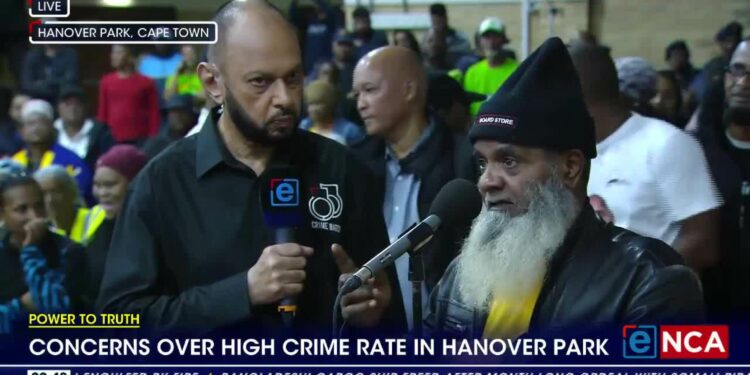South Africa’s major news media organisations held town hall debates in the weeks leading up to the country’s recent historic seventh democratic General Election.
These town hall debates played a key role in amplifying civic voices as more than 27 million registered voters prepared to cast their ballots in diverse localities around the nation, amidst blaring feelings of lingering cynicism regarding the country’s political, social, and economic situation.
During an election year, town hall debates are usually a foundational component of the news media’s contributions to democracy and citizenship.
Our nation’s democratic transition in 1994 came with shifts in social relations that needed to be reflected in broadcast media. During this period, the press was mandated to prioritise more than just the voices of the elite by implementing participatory democratic platforms that are committed to the process of public deliberation.
It was tasked with strengthening the practice of citizenship by prioritising the public’s interests, mainly an urgent need for a greater than before visibility of Black people’s lives, opinions, and ideas in the public domain.
This saw the country’s first democratic elections in April 1994 being preceded by political town hall meetings across the country which were organised by the South African Broadcasting Corporation’s (SABC) news division.
Thirty years later, this urgent responsibility should be maintained. But future pre-election town hall debates in South Africa may need a journalistic overhaul in communicative approach.
In April 2024, the eMedia Investments-owned and MultiChoice-commissioned South African 24-hour television news channel eNCA, began a series of town hall debate specials dubbed eNCA’s Town Hall Debate to precede the upcoming general elections.
Critical dialogues
These town hall debates aimed to fulfil eNCA’s communicative ethos to “crisscross the country, facilitating critical dialogues between politicians and voters”, while highlighting topics like service delivery, crime, and corruption as pertinent issues on the agenda.
These national broadcast television events were held live at institutions of higher learning in cities such as Cape Town, Johannesburg, Bloemfontein, Gqeberha, Pretoria and Durban. For wider reach, live streams were also made available on the channel’s official website.
Moderated by eNCA’s on-air news anchors, the duration of each town hall debate was roughly 90-minutes. The panel was made up of the top five political party representatives of each province. They were expected to engage in discussions on matters that are most important to that specific region.
Each party representative was accompanied by 10 to 15 members who participated as part of the audience, together with civil society organisations, activists, and ordinary South African citizens. The flow of the debates was steered by the news anchors who used a moderated ‘question and answer’ approach by opening the debate to the floor, allowing the audience to pose poignant questions to the panel on stage.
Cultural spaces
eNCA’s facilitation of the town hall debate format during a pivotal election year is just one example of how the news media can act as a facilitator in amplifying electorate concerns. These town hall debates were more than just a platform designed for political party campaigning.
Yes, political leaders could clarify their positions on key issues and propose their solutions to the current challenges facing our democracy, but fundamentally, the debates were an opportunity meant for South African citizens to practice their citizenship by having a voice in how they are governed.
In this instance, the pattern of dialogue is one that attempts to hold political leaders accountable. The media is usually the only powerful tool where significant cultural spaces exist for political elites to be challenged. eNCA’s town hall debates provided a space where the political elites and citizens could be equals.
Freedom of speech
Even though this is temporary, the set-up allowed both sides to collectively hear each other out. The premise is largely geared towards amplifying the voices of a marginalised fragment of the population, whose voices are rarely heard in the mainstream.
This is a democratic practice that sees ordinary South Africans asserting themselves by exercising their Freedoms of Speech and Expression in topics that are brought forth to public attention when civic participatory discourse is prioritised by the news media.
Although not immune to disarray and editorial lapses at times, the format matters. However, it needs to be refined.
The format could become somewhat of a greater needle moving genre if it applied some effective theoretical communicative approaches. I think bridging academic and non-academic communicative practices to strengthen the format’s ethos in building citizenship could potentially garner lasting and constructive impacts.
Political listening
The theoretical conception of ‘political listening’ pioneered by political scientist Susan Bickford, offers scholarship that looks at how the act of ‘listening’ is carried out in political interaction. In post-democratic South Africa, the current relationship between the political leaders and citizens is often one of discord due to a lack of ‘intersectional’ listening.
The news media’s role of mediator during these town hall debate events should attempt to pull apart the hierarchical positions in who gets to talk and who gets to be heard, whereby significant statements are carefully fact-checked.
In the pursuit of enriching a nation’s democratic life, the practice of political listening presents strategies which consider ways in which political leaders and citizens can listen, speak, and act differently towards each other.
It proposes an alternative structure that can dismantle the existing hierarchical and oppositional binaries (between political leaders and citizens) that limit the possibilities of growing sustainable civic participation.
Civic agency and participation
I don’t think it’s very effective to view these town hall debates as just a mere ‘orchestration’ of public discussions in the journalistic space. It’s a tool that has the potential to supersede the intention of producing journalism that is conveyed through soundbite moments.
By fostering civic agency and participation, it could pluralise democratic life. The function of town hall debates is embedded with the simultaneous characteristics of interventionism and engagement as it rethinks ‘news’ by occupying a role that is actively involved in social and political processes, to cultivate a communal civic mission.
Essentially, this format should be regarded as a forum that aims to facilitate civic centered discourse as an advancement of democratic social responsibility by the news media.
Banathi Mgqoboka is an award winning, Cape Town-based multi-platform journalist, writer, and researcher in the areas of contemporary social realism and critical media analysis – bridging academic and non-academic critical discourse. He holds a Master of Arts (M.A.) degree from Rhodes University’s School of Journalism and Media Studies, where he was a research scholar in the National Research Foundation (NRF) ‘Licence to Talk’ Project.














